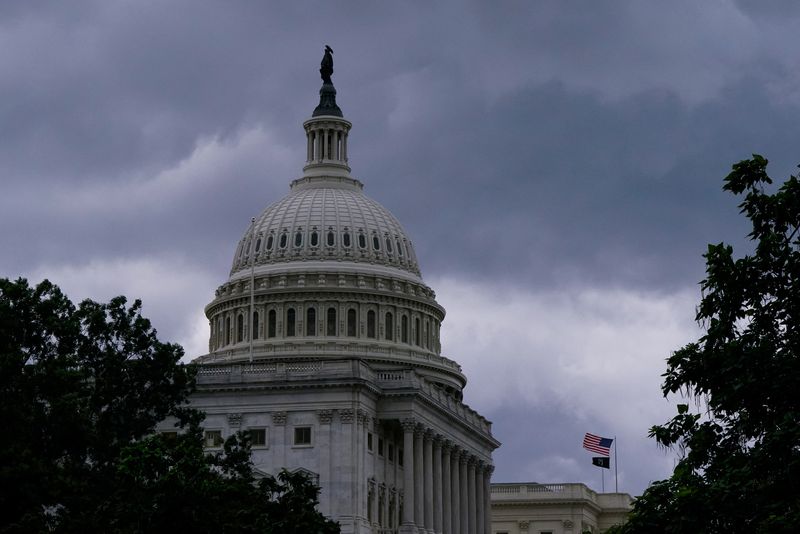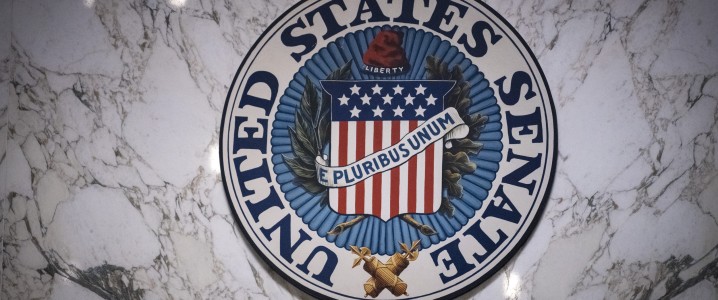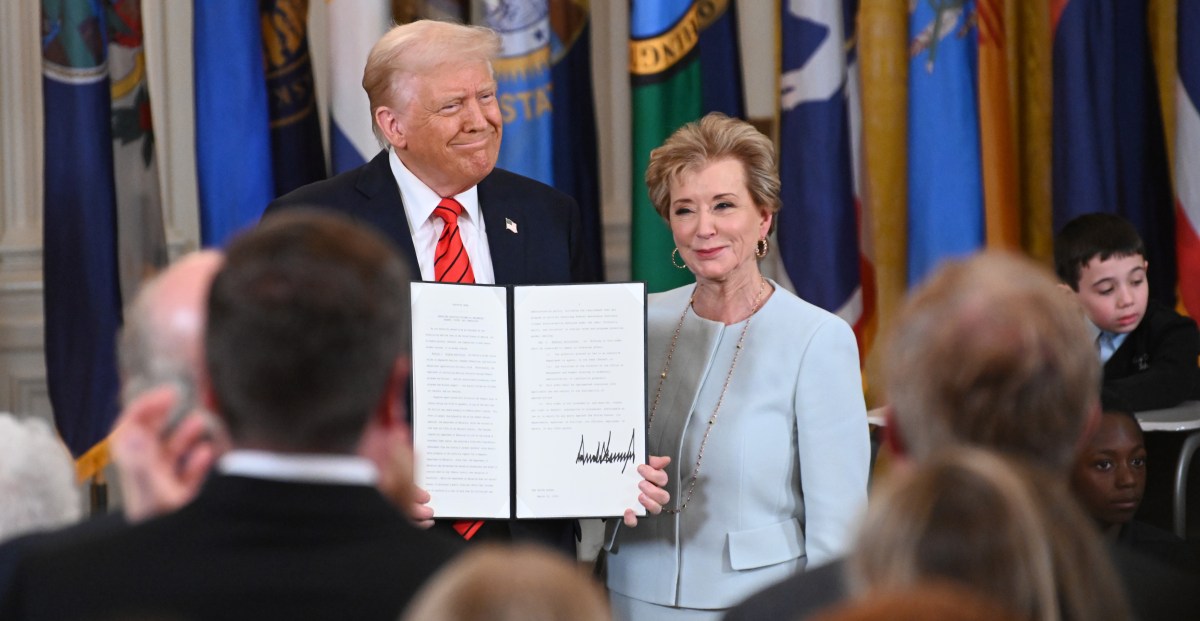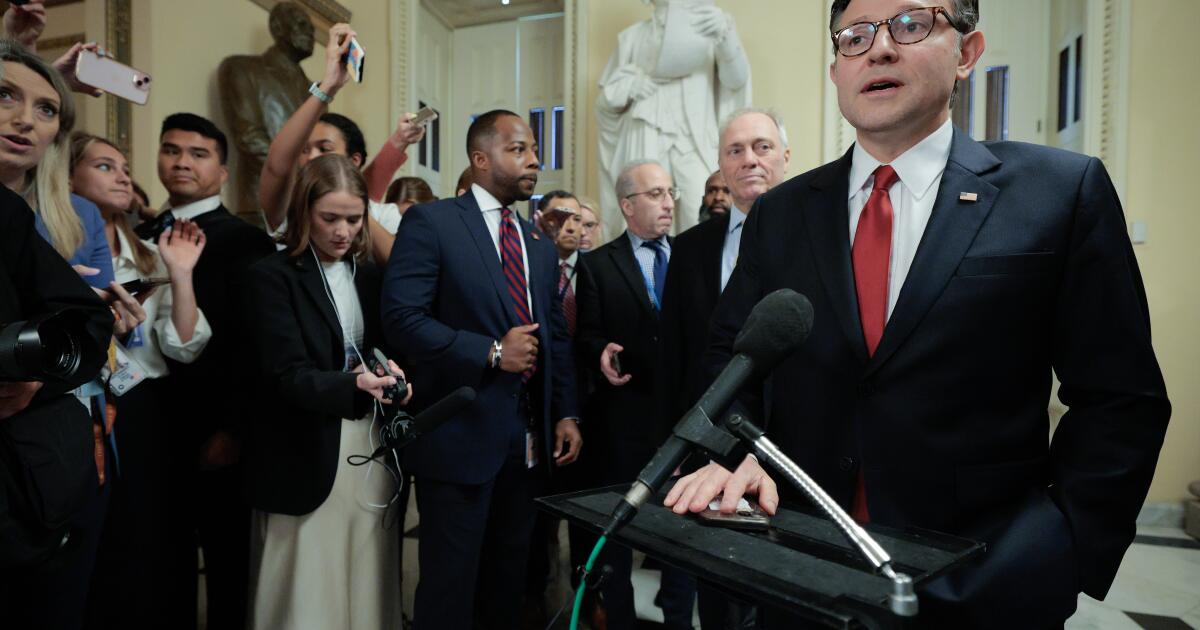House Republicans say they expect to vote tonight on Trump’s tax-cut bill
Read More
Blog
-

House Republicans say they expect to vote tonight on Trump’s tax-cut bill
-

Trump’s tax bill stalls in House as Republicans clash over spending cuts
Please enable cookies.
Sorry, you have been blocked
You are unable to access washingtontimes.com
Why have I been blocked?
This website is using a security service to protect itself from online attacks. The action you just performed triggered the security solution. There are several actions that could trigger this block including submitting a certain word or phrase, a SQL command or malformed data.
What can I do to resolve this?
You can email the site owner to let them know you were blocked. Please include what you were doing when this page came up and the Cloudflare Ray ID found at the bottom of this page.
Cloudflare Ray ID: 95fd0abfec8a2f0f
•
•
Performance & security by Cloudflare -

Can Europe Build Its Own Atomic Arsenal?
By Tsvetana Paraskova – Jul 02, 2025, 6:00 PM CDT
- Following the Russian invasion of Ukraine and the on-and-off Russian nuclear threats, scholars have been analyzing Europe’s defense capabilities against Moscow’s huge nuclear warhead fleet.
- Key obstacles include the Non-Proliferation Treaty and differing perspectives among European countries on the use of nuclear weapons.
- Experts suggest that a European nuclear force would be most effective if integrated within NATO, rather than developed independently.

Following the Russian invasion of Ukraine and the on-and-off Russian nuclear threats, scholars have been analyzing Europe’s defense capabilities against Moscow’s huge nuclear warhead fleet.
Mixed messages from U.S. President Donald Trump about NATO before the alliance’s summit last month have also prompted analyses of whether and how Europe could defend itself in case the United States doesn’t adhere to Article 5 of the NATO treaty that mandates collective NATO defense against any attack on a NATO member state.
Various experts in war studies and arms control say that Europe will have the technology to build a so-called ‘Eurodeterrent’, although the endeavor will be a challenge in terms of agreeing on a joint nuclear doctrine and different perspectives in the different countries about when nuclear weapons should be used.
Most Western European countries, the Baltic states, Scandinavia, and eastern European countries from the former Soviet bloc are now part of NATO. But in Europe, the UK and France are the only countries with their own nuclear warheads and fleets.
There are other nuclear weapons stationed across Europe – in Belgium, Germany, the Netherlands, Italy, and Turkey – but these are U.S. nuc
ar weapons stationed in military bases under NATO’s Nuclear Sharing Arrangements. To guarantee the security of its Allies, the United States has deployed a limited number of B-61 nuclear weapons to certain locations in Europe, which remain under US custody and control in full compliance with the Treaty on the Non-Proliferation of Nuclear Weapons (NPT).
A new Eurodeterrent “might produce a stockpile of nuclear warheads within three years—rivaling the speed of the U.S. Manhattan Project—and assemble an atomic cache perhaps one-tenth the size of the current American arsenal,” Alexander Bollfrass at the London-based International Institute for Strategic Studies told Forbes contributor Kevin Holden Platt.
Europe has the know-how, technology, and the capability of uranium enrichment, Bollfrass, who is Head of Strategy, Technology and Arms Control at the IISS, says.
From a technological standpoint, “Germany brings uranium enrichment and a heavy aerospace industry, while Sweden offers delivery systems, missile expertise and a legacy of nuclear research. Italy could significantly contribute to missile and space-launch know-how. The Netherlands, while lacking delivery platforms, adds critical enrichment capacity,” Bollfrass wrote in an analysis in May.
Yet, there are challenges. The UK and France, the only two nuclear powers in Europe, are signatories to the Treaty on the Non-Proliferation of Nuclear Weapons (NPT).
Article 1 of said Treaty states that “Each nuclear-weapon State Party to the Treaty undertakes not to transfer to any recipient whatsoever nuclear weapons or other nuclear explosive devices or control over such weapons or explosive devices directly, or indirectly; and not in any way to assist, encourage, or induce any non-nuclear-weapon State to manufacture or otherwise acquire nuclear weapons or other nuclear explosive devices, or control over such weapons or explosive devices.”
This means that as-is, the UK or France cannot lead a European nuclear deterrent force.
Moreover, while the UK’s nuclear arsenal is a contribution to NATO deterrence, France has always upheld that its nuclear weapons and capabilities are exclusively to protect vital French interests.
The best answer is for France and the UK to lead a European nuclear force within NATO, not outside it, according to the Wilfried Martens Centre for European Studies, the official think tank of the European People’s Party—a transnational center-right, pro-European political party and the largest political family in EU.
Some steps to make a European nuclear force within NATO happen could include France joining NATO’s Nuclear Planning Group (NPG) and nuclear missions; France and the UK expanding their nuclear and conventional deterrent capabilities; and using advanced technology like AI to missile defense and counter hypersonic threats, the think tank said.
“Europe needs to act now. The way forward is not a European nuclear deterrent apart from NATO, but one anchored within it. Only then will Europe stand as a true equal transatlantic partner and face any threat with unity and resolve, not division,” analysts at the Wilfried Martens Centre for European Studies wrote.
By Tsvetana Paraskova for Oilprice.com
More Top Reads From Oilprice.com
- China Wins Big as Sanctions Cripple Russia’s Steel Industry
- After Russia’s Failure, Iran Seeks China’s Military Might
- Germany’s Nuclear U-Turn Divides Leadership

Tsvetana Paraskova
Tsvetana is a writer for Oilprice.com with over a decade of experience writing for news outlets such as iNVEZZ and SeeNews.
Related posts
-

Obvious Losers, Unexpected Winners As Tax Bill Passes Senate
By Alex Kimani – Jul 02, 2025, 5:30 PM CDT
- U.S.-focused clean energy firms like Sunrun, First Solar, and Plug Power surged on Senate revisions to Trump’s energy bill.
- New rules require projects to be operational by 2027.
- Hydrogen, battery storage, coal (for steelmaking), and nuclear stocks rose on incentives, tax credit extensions, and domestic sourcing carveouts.

Clean energy stocks delivered mixed performances on Wednesday as investors continued digesting the Senate’s surprise revisions to President Trump’s “big, beautiful bill.” Utility-scale solar firms remained under pressure, while residential solar, hydrogen, and U.S.-based battery storage companies extended gains amid signs the legislation favors domestic supply chains and penalizes projects linked to China.
NextEra Energy (NYSE:NEE) slipped another 1.2% on Wednesday, compounding earlier losses, while AES Corp. (NYSE:AES) closed flat after a two-day decline of more than 6%. Shoals Technologies (NASDAQ:SHLS), already down over 14% on Monday, dropped another 3.6% Wednesday. Nextracker (NASDAQ:NXT) slid 2.4%, and Enphase Energy (NASDAQ:ENPH) shed another 4.2%, extending its weekly decline past 15%.
Array Technologies (NASDAQ:ARRY) was down 1.8% Wednesday, failing to recover from Monday’s -10.1% plunge, as investors reassessed the near-term pipeline risk from the new operational deadline for tax credit eligibility.
But There Are Winners, Too …
Sunrun (NASDAQ:RUN) added 2.7% Wednesday, bringing its weekly gain to nearly 17% as markets priced in a more favorable outlook for distributed solar. First Solar (NASDAQ:FSLR) advanced another 1.5% on the day following two strong sessions. Analysts at Jefferies upgraded the stock, calling it a key winner from U.S. content incentives and tariffs on Chinese materials.
Fluence Energy (NASDAQ:FLNC) and Eos Energy Enterprises (NASDAQ:EOSE), both operating battery storage projects in the U.S., gained 3.1% and 2.5% respectively. As noted here, traders continue rotating into companies best positioned to meet the new sourcing and operations deadlines.
And Hydrogen is getting a boost, as well.
Hydrogen stocks surged for a third straight session after the Senate unexpectedly extended the 45V clean hydrogen production tax credit to 2027. Plug Power (NASDAQ:PLUG) soared another 8.2% Wednesday, bringing its three-day gain to more than 40%. Bloom Energy (NYSE:BE) added 3.4%, and Ballard Power Systems (NASDAQ:BLDP) rose 2.2%, supported by increasing optimism that delayed U.S. hydrogen projects will now move forward under more favorable terms.
Coal, nuclear, and legacy energy stocks have also caught the tailwinds.
Steelmaking coal producers continued to gain on Wednesday after the bill granted critical minerals tax credit eligibility to metallurgical coal. Alpha Metallurgical Resources (NYSE:AMR) rose 1.9%, Warrior Met Coal (NYSE:HCC) added 2.4%, and Peabody Energy (NYSE:BTU) was up 1.5%.
Meanwhile, uranium and nuclear-linked equities also saw light buying as the bill preserved tax credits for non-carbon baseload power including nuclear, hydro, and geothermal. Cameco (NYSE:CCJ) and Constellation Energy (NASDAQ:CEG) rose modestly, up 0.7% and 1.1% respectively.
Policy In the Volatility Driver’s Seat
The Senate bill tightens tax credit qualification rules by requiring renewable projects to be operational by 2027, rather than just under construction. It also levies new taxes on projects that use Chinese-sourced materials and allows some carveouts for clean hydrogen and domestic manufacturers.
According to Rhodium Group estimates, the combination of tax loss and China-linked penalties could raise project costs by up to 20%, with developers likely to pass that through in electricity prices. The American Clean Power Association warned of an 8–10% rise in consumer electricity bills if the proposal is enacted.
With the bill headed back to the House for reconciliation, market participants are bracing for additional volatility. Fiscal conservatives are expected to contest the Senate version’s deficit impact—estimated to add roughly $1 trillion more than the House-passed bill from May. For now, traders are positioning around likely winners with U.S.-centric supply chains, while pricing in risk for utility-scale developers with international exposure.
By Alex Kimani for Oilprice.com
More Top Reads From Oilprice.com
- Iraq Claims Top Spot Among OPEC Crude Suppliers to the U.S.
- Russia’s Oil Exports Stagnate as Prices Sink and Sanctions Bite
- UK Scraps $34 Billion Morocco-Linked Subsea Power Cable Megaproject

Alex Kimani
Alex Kimani is a veteran finance writer, investor, engineer and researcher for Safehaven.com.
Related posts
-

Haitian congregations relieved after judge blocks Trump’s attempt to deport migrants
(RNS) — A federal judge has blocked the Trump administration’s plans to end temporary protected status for Haitian migrants before it is set to expire in February 2026.
In his Tuesday (July 1) ruling, New York-based Judge Brian Cogan said Department of Homeland Security Kristi Noem didn’t “have statutory or inherent authority to partially vacate a country’s TPS designation.”
The ruling comes months after Noem announced the administration would cut TPS for Haitians, which would have ended their legal status on Aug. 3. The lawsuit was filed against her and President Donald Trump by a group of Haitian migrants and advocacy groups, including the Haitian Evangelical Clergy Association.
For recently arrived Haitians, many of whom fled the gang violence-stricken island, Tuesday’s decision brought a glimpse of hope. Now, the nearly 350,000 Haitians in the country under TPS status have more time to apply for other legal immigration statuses. The program can’t be suspended without a 60-day advance notice, Cogan said in his ruling.

A mother carries her son as she runs past a burning barricade during a protest against the government in Port-au-Prince, Haiti, Nov. 18, 2022. (AP Photo/Odelyn Joseph)
The decision gives Haitians in the country under the law “a little bit of relief,” said Springfield, Ohio-based Pastor Viles Dorsainvil, co-founder of Springfield’s Haitian Support Center, and one of the plaintiffs.
“They have a little chunk of time just to make arrangements if they decide to stay here, or if they decide to go somewhere else because I think that Aug. 3 was too much on short notice for them to do what they had to do,” he said.
The decision is a “victory” that will protect “350,000 immigrants from imminent deportation to Haiti,” wrote attorneys Andrew Tauber and Geoff Pipoly of law firm Bryan Cave Leighton Paisner LLP, which represented the plaintiffs.
“This is a victory not only for our clients, who bravely stood up for what is right, but also for the rule of law,” they wrote in a statement.
The Trump administration said it was prepared to appeal the decision.
DHS Assistant Secretary Tricia McLaughlin wrote in an emailed statement that the ruling “delays justice and seeks to kneecap the President’s constitutionally vested powers under Article II,” referring to his executive powers.

Jean-Michel Gisnel cries out while praying with other congregants at the First Haitian Evangelical Church of Springfield, Jan. 26, 2025, in Springfield, Ohio. (AP Photo/Luis Andres Henao)
“Haiti’s TPS was granted following an earthquake that took place over 15 years ago, it was never intended to be a de facto asylum program, yet that’s how previous administrations have used it for decades,” she said in the statement. “The Trump administration is restoring integrity to our immigration system to keep our homeland and its people safe, and we expect a higher court to vindicate us in this. We have the law, the facts, and common sense on our side.”
Half a million migrants, many from Haiti, were granted TPS under Biden-era programs introduced in 2023 to create legal immigration routes for nationals of Cuba, Nicaragua, Venezuela and Haiti. In October, the Biden administration announced that it would not renew the programs, after suspending them in August following an internal report that flagged possible sponsorship fraud. Despite the suspension, beneficiaries of the programs would still enjoy their legal status until it expired.
In March, the Trump administration overturned the programs, urging beneficiaries to self-deport by late April or prepare to face immigration arrests.
The programs didn’t “serve a significant public benefit, are not necessary to reduce levels of illegal immigration, did not sufficiently mitigate the domestic effects of illegal immigration, are not serving their intended purposes, and are inconsistent with the administration’s foreign policy goals,” Noem said in a March 25 notice.
According to the United Nations, more than 5,600 people were killed due to gang violence in Haiti in 2024. In Port-au-Prince, the nation’s capital, armed gangs have gained control of entire neighborhoods and could soon control the entire city.

A person lifts a sheet to look at the identity of a body lying on the ground after an overnight shooting in the Petion Ville neighborhood of Port-au-Prince, Haiti, March 18, 2024. (AP Photo/Odelyn Joseph)
The DHS decision to cut short Haiti’s TPS status prompted angst among the Haitian community, said Dorsainvil. Some feared arrests by immigration enforcement.
Springfield is home to many Haitians who fled gang violence, and the announcement deterred many from stepping outside, he said. Once thriving, Springfield’s Haitian community saw a decline in church service attendance and English classes.
“That created some kind of chaos,” said Dorsainvil. “And the thing is, not only the chaos, but also they felt like they were being trapped by the fact that it was a short notice. … It was disastrous.”
For those with relatives in Canada, attempting the journey across the border also wasn’t an option, as they feared being detained by U.S. law enforcement and deported back to Haiti. Taking the risk to return to the gang-stricken island would be “a suicidal decision,” he said.
Bishop Nicolas Homicil, pastor at Voice of the Gospel Tabernacle church in the Mattapan neighborhood of Boston, said the ruling gave his migrant congregants “relief for some time.” When the Trump administration announced it would revoke the legal status, members of the community were devastated, he said.
He said the administration is attempting to “mistreat the poor people (of Haiti) who left their home for specific reasons,” and people who were affected started to feel “really depressed” after the decision.
The Trump administration’s plan was part of a broader wave of anti-Haitian sentiment, he said, noting that last summer during the run-up to the presidential election, Trump and now-Vice President JD Vance spread unverified claims that Haitian migrants in Ohio were eating their neighbors’ pets.
Haitians are stuck in a difficult situation, Homicil said, as the U.S. ultimately is set to end TPS for them and they still must find another legal path to stay in the country. Gangs make it impossible for migrants to return in Haiti, he added.
“The country is a disaster, and the U.S. government (knows) that,” he said. “When I heard Homeland Security say that the situation in Haiti has improved, I am wondering which Haiti they are talking about.”
As an independent nonprofit, RNS believes everyone should have access to coverage of religion that is fair, thoughtful and inclusive. That’s why you will never hit a paywall on our site; you can read all the stories and columns you want, free of charge (and we hope you read a lot of them!)
But, of course, producing this journalism carries a high cost, to support the reporters, editors, columnists, and the behind-the-scenes staff that keep this site up and running. That’s why we ask that if you can, you consider becoming one of our donors. Any amount helps, and because we’re a nonprofit, all of it goes to support our mission: To produce thoughtful, factual coverage of religion that helps you better understand the world. Thank you for reading and supporting RNS.
Deborah Caldwell, CEO and Publisher
-

Trump vs. after-school programs, briefly explained
This story appeared in The Logoff, a daily newsletter that helps you stay informed about the Trump administration without letting political news take over your life. Subscribe here.
Welcome to The Logoff: Today, I’m focusing on the Trump administration’s decision to withhold nearly $7 billion in federal education funding.
What just happened? The Trump administration refused to release congressionally mandated funding to support a variety of education initiatives: after-school and summer programs, programs for students who are learning English, teacher training, classroom technology, and more.
The nearly $7 billion was allocated to states and local schools, and should have gone out on Tuesday. Its loss will be particularly harmful because school districts have already made plans with the assumption that the money would be there, only to have it pulled at the last minute.
What is the administration saying? The Trump administration argues the withholding isn’t a freeze and is instead because the funds are under review. But this argument is likely a fig leaf, given the administration’s opposition to the programs in question and its previous efforts to withhold funding for programs it disagrees with. What the administration appears to be doing is called impoundment — the decision not to spend money that Congress has already appropriated for a specific purpose.
Can they do that? Not really — but we’ll see how the courts rule, since the administration’s decision is almost certain to be challenged in court. Though the president can request Congress withdraw funding — and making that request would trigger a temporary freeze — the administration hasn’t done so in this case.
What’s the big picture here? The Trump administration is waging a war against the congressional power of the purse, led by Office of Management and Budget director Russ Vought (of Project 2025 fame).
The decision to withhold education funding is one of a number of efforts to wrest spending power from Congress, and recent reporting suggests the administration is considering ways to step up its attack and challenge restrictions on impoundment more broadly. If it’s successful, it will be a major expansion of Trump’s powers — and another blow to Congress’s.
And with that, it’s time to log off…
I absolutely loved this story from my colleague Bryan Walsh about the new Vera C. Rubin Observatory in Chile, which just last month shared its first images of the cosmos. The telescope itself is a scientific marvel that has already provided useful data to researchers, but, as Bryan points out, it’s also the “ultimate perspective provider,” a reminder of our place in a vast, beautiful universe. I hope you enjoy his piece — and the photos — as much as I did, and I’ll see you back here tomorrow!
-

Why blocking this risky AI provision was the right move by the Senate
There is much for liberals to dislike in the massive policy package — President Donald Trump’s so-called Big Beautiful Bill — that the Senate narrowly passed on Tuesday. It’s a supercharged version of longstanding Republican priorities; the wealthy will benefit from tax cuts, while needy people will see their social safety net degraded even more thoroughly into tatters.
As AI becomes ever more embedded in our lives, states can regulate it as they see fit.
However, a key development late in the Senate negotiations deserves celebration regardless of your politics. A House version of the bill would have prevented states from regulating artificial intelligence for the next decade. Once the bill made its way to the Senate, Sens. Marsha Blackburn of Tennessee and Ted Cruz of Texas, both Republicans, agreed that it would be a five-year ban instead. But then Blackburn withdrew her support, meaning that there would be no ban on AI regulation in the bill the Senate has sent back to the House.
That means that as AI becomes ever more embedded in our lives, states can regulate it as they see fit, whether in regard to building data centers or using mortgage algorithms. “The Senate did the right thing today for kids, for families and for our future by voting to strip out the dangerous 10-year ban on state A.I. laws, which had no business being in a budget bill in the first place,” Jim Steyer, chief executive of Common Sense Media, said after the ban was removed from the budget bill in an astonishing 99-to-1 vote.
A useful tracker compiled by the law firm Bryan Cave shows that the nation is a patchwork of AI regulations. Kansas, Wyoming and Arkansas are the only states where legislation has neither been enacted nor introduced. Utah passed a bill prohibiting mental health chatbots; in Texas, similar legislation failed. In California, you have to disclose any manipulated content (i.e., deepfakes) used for electoral purposes; Tennessee has passed the Ensuring Likeness Voice and Image Security Act (aka, the ELVIS Act; get it?), which “protects voices of songwriters, performers, and celebrities from artificial intelligence and deepfakes by prohibiting the use of AI to mimic a person’s voice without their permission.”
I’m going to spare you a rundown of all 50 states — you get the idea. Legislators across the country, and across the political spectrum, are grappling with what AI will mean for our society, regardless of whether your car bears a MAGA or LGBTQ bumper sticker. Why would anyone want to prevent that?
Kudos to Blackburn for standing up to Big Tech, but it should not have come to this. Last I checked, the Republicans were supposed to be the party of states’ rights — even though that call itself originated as a Jim Crow-era rallying cry to escape school desegregation and other measures related to civil rights protections for Black people. How ironic, then, that some in the GOP wanted the federal government to prevent Massachusetts and Texas from going their respective ways when it comes to tech policy.
But this is about much more than politics.
It is true, AI could hold great promise in fields like medicine, especially when coupled with supercomputing. It may be able to perform tedious tasks, freeing us humans for more interesting and consequential stuff, like inventing new bacon-flavored cocktails.
If human history is any lesson, we will probably end up somewhere in the middle.
Then there’s the not-so-good stuff, such as the threat of AI destroying the world. I wish that were the premise of a new Netflix series. Instead, it is the opinion of some (though by no means not all) experts on the topic. “The best way to understand it emotionally is we are like somebody who has this really cute tiger cub. Unless you can be very sure that it’s not gonna want to kill you when it’s grown up, you should worry,” Jeffrey Hinton, a Nobel laureate who is sometimes known as “the Godfather of AI,” recently told CBS News.
If human history is any lesson, we will probably end up somewhere in the middle. Bad actors are already doing everything they can to undermine democracy (see “Mountainhead,” the new film by “Succession” creator Jesse Armstrong), but enough good, smart people are on the case to (hopefully) curb malign influences.
Democrats’ love of rules is frequently mocked, and sometimes deservingly so. There is no doubt that we could over-regulate ourselves and stifle innovation, losing out to China in the process. Given how much clout Silicon Valley has come to wield on Capitol Hill, though, I fear that the opposite is more likely to come true: right-wing tech power brokers like Marc Andreessen and Elon Musk will likely do everything they can to make sure that we have as little regulation on AI as possible.
That’s why the Senate’s resounding rejection of a state-level legislation moratorium was so important. Politicians in Washington may not agree on much, but they seem to understand that we are at a perilous moment for human civilization, having finally invented machines that are nearly as smart as we are. We have to get this right.
-

“No One Is Happy About It.” CBS Staffers Were Tired of the Paramount Drama, but the Settlement Intensifies Media-Capitulation Concerns
“Enough is enough.” That was the sentiment from inside CBS, one staffer told Vanity Fair, as Paramount reached a settlement agreement on Tuesday with the Trump administration—a move broadly criticized as capitulation. Inside the news institution, which has been rattled by the drawn-out legal saga, executive departures, and claims of editorial interference, all in the context of a looming sale to Skydance, people are ready to move on. Meanwhile, Senator Elizabeth Warren plans to drag the fight to Congress, calling for an investigation into the settlement. “It’s been something that has lasted so long as a trauma,” added the source.
And yet, according to this source, “The general sense is no one is happy about it.”
In a near midnight agreement on Tuesday, Paramount settled the defamation lawsuit launched over the editing of a preelection interview on 60 Minutes featuring then vice president Kamala Harris. Under the terms, Paramount has agreed to pay a total of $16 million, all of which will be allocated to his future presidential library, minus legal fees. In a statement, Paramount specified that the settlement “does not include a statement of apology or regret,” however, going forward, “60 Minutes will release transcripts of interviews with eligible US presidential candidates after such interviews have aired.”
Warren called for an investigation into the network’s settlement Wednesday, arguing that “this could be bribery in plain sight.” She added that “Paramount should be ashamed of putting its profits over independent journalism.” Warren also emphasized a “glaring need for rules to restrict donations to sitting presidents’ libraries,” and she will soon be introducing legislation to “rein in corruption.” Senator Bernie Sanders also released a statement slamming the settlement, characterizing Trump’s defamation lawsuit as “bogus” and arguing that “the Redstone family diminished the freedom of the press today in exchange for a $2.4 billion payday.”
“Companies often settle litigation to avoid the high and somewhat unpredictable costs of legal defense, the risk of an adverse judgment that could result in significant financial or reputational damage, and the disruption to business operations that prolonged legal battles can cause,” a Paramount Global spokesperson said in a statement to Vanity Fair in response to concerns of bribery. “Settlement offers a negotiated resolution that allows companies to focus on their core objectives rather than being mired in uncertainty and distraction.”
In a news story reporting the settlement, Benjamin Mullin, Michael Grynbaum, Lauren Hirsch, and David Enrich of The New York Times called the agreement an “extraordinary concession to a sitting president by a major media organization,” as well as “the clearest sign yet that Mr. Trump’s ability to intimidate major American institutions extends to the media industry.”
The Writers Guild of America East, which represents many staffers at CBS News, torched the settlement as a “transparent attempt to curry favors with an administration in the hopes it will allow [the] Paramount Global and Skydance Media merger to be cleared for approval. Paramount’s decision to capitulate to Trump threatens journalists’ ability to do their job reporting on powerful public figures.” Reporters Without Borders, an international nonprofit organization, called the settlement a “shameful decision” by Redstone and the company. “A line is being drawn between the owners of American news media who are willing to stand up for press freedom and those who capitulate to the demands of the president.”
Inside the CBS newsroom, CBS News president and executive editor Tom Cibrowski addressed the settlement on Wednesday’s editorial call, emphasizing that CBS News was not required to apologize as part of the agreement, according to CNN’s Brian Stelter. Cibrowski’s comments included some words of appreciation for CBS News staffers, thanking them for “blocking out the noise” during the legal turmoil. The staffer tells me that while “people aren’t happy about the idea of settling and there’s sadness about it, there’s also an acceptance that for 99% of people, this is out of their hands.”
The lawsuit has generated significant upheaval within CBS News, with the resignation of 60 Minutes executive producer Bill Owens, who cited the inability to “make independent decisions” about the program as reasoning for his exit, amid looming legal challenges. Just one month later, the president of CBS News, Wendy McMahon, departed the network, telling staffers in a memo that “it’s become clear the company and I do not agree on the path forward.” Meanwhile, Paramount is in the midst of completing a multibillion-dollar sale to Skydance, which would take the financial pressure off of chair and controlling shareholder of Paramount Shari Redstone and place the company in the hands of Skydance CEO David Ellison. Just last month, Fox Business senior correspondent Charles Gasparino told me in an interview that Redstone “has a huge tax bill. She’s wrapped up in this melting ice cube of a company.” He added that Skydance isn’t interested in the company for the news network. “The business that they’re arguing over is something that could go away in literally three or five years.”
A source close to Redstone tells me that she “very much recused herself” from the settlement negotiation process, adding that “she would be an idiot to play a role.” According to the source, Redstone signaled that she would like to settle, but left the specifics of the settlement up to mediators. “I don’t think she was heavy-handed in the negotiations, nor would it be prudent for her to have been,” they added.
Meanwhile, Redstone is also battling thyroid cancer and has been “really focused on her health, even though this whole situation might have, in her mind, caused her cancer from all the stress,” the source said. While some were shocked when Puck reported that Redstone was not on the list for this year’s Allen & Co. conference in Sun Valley, Idaho, an annual event frequented by media moguls and billionaires, the source noted that her absence was “simply because of health.”
-

Calmes: In the halls of Congress and on the canals of Venice, the new Gilded Age has a moment
The juxtaposition at the weekend was apt: one big, ugly bill in Washington and one big, garish wedding in Venice.
This is what days of Senate debate over President Trump and Republicans’ nearly 1,000-page legislation had in common with the days of revelry at the $50-million nuptials of the world’s-third-richest-man, Jeff Bezos, and ever-couture-corseted Lauren Sánchez: an exhibit of excess for a new Gilded Age, encapsulating the gulf between the have-nots and the have-yachts. (Venice’s “yacht ports” were reportedly all booked for the wedding, though not by Bezos’ own 417-foot-long “Koru.”)
The president was invited, natch, but he was a no-show. Consider his legislation his gift to the happy couple. Sánchez and Bezos have much to love in Trump’s absurdly titled “One Big Beautiful Bill Act” making its way through the Republican-run Congress. But Bezos’ Amazon employees and many of his cut-rate-shopping customers? Not so much.
This may be the most inequitable and overtly reverse-Robin Hood budget behemoth ever. It would make permanent and expand upon the deep Trump tax cuts of 2017 that disproportionately benefited the rich. The multitrillion-dollar cost would be offset by about $1 trillion in healthcare cuts, mostly to the Medicaid program that serves more than 70 million people. Other cuts would end clean-energy projects (costing jobs and ceding the alternative-energy future to China) and slash nutrition programs for the needy. Meanwhile, spending would increase roughly 15-fold for immigration enforcement, paying for purposely cruel detention centers such as Trump’s new “Alligator Alcatraz.”
Bottom line: about $3.5 trillion in additional debt over just the next 10 years, according to the Congressional Budget Office.
This monstrosity would exacerbate what is already record income inequality in the United States. It would reverse the past decade’s decline, under Obamacare, in the number of Americans without health insurance, causing about 17 million people to lose coverage, according to the health-policy nonprofit KFF. More rural hospitals, reliant on Medicaid, would close. Forget the “minutiae of Medicaid policy,” tweeted Vice President JD Vance, supposed elegist of hillbillies and other downtrodden Americans — it’s the extra immigration crackdown cash that counts.
Healthcare threats loom even as two research papers recently reported that Obamacare and its Medicaid expansion have saved the lives of many low-income adults. One study last month found that the proposed cuts could increase preventable deaths by nearly 17,000 annually. The other, in May, concluded that as much as 20% of the well-documented disparity in the lifespans of low- and high-income Americans, with the latter living longer, is attributable to the lack of health insurance among those with lower incomes.
In other words, the supposed One Big Beautiful Bill Act would be a killer.
That, of course, would be the worst of it. But other descriptors are so damning that only Trump’s death grip on fellow Republicans can explain why they’d vote for this politically suicidal package. With polls this bad, the 2026 midterm elections can’t come soon enough to eject Republicans’ rubberstamping majority in Congress and check Trump’s madness.
“The largest upward transfer of wealth in American history,” said the Atlantic of the bill’s particulars. “The biggest cut to programs for low-income Americans ever,” according to budget guru Bobby Kogan at the left-leaning Center for American Progress. “The most expensive piece of legislation probably since the 1960s,” said analyst Jessica Riedl of the conservative Manhattan Institute, “… piling trillions of new borrowing on top of deficits that are already leaping.”
That pile-up couldn’t happen at a worse time.
For decades, budget experts have warned of a coming fiscal tsunami by the 2020s that would swamp the economy as retiring boomers drew from Social Security, Medicare and Medicaid while federal revenues were drained by tax cuts. Yet Republican presidents and Congresses kept cutting taxes and, in league with Democrats, failed to make necessary and relatively painless adjustments to the so-called entitlement benefit programs.
And now here we are, knifing Medicaid not to make it and the overall budget more fiscally sound, but to offset the cost of more tax cuts favoring the wealthy, driving up debt.
Trump, plainly peeved at talk that he’ll break his first-term record of the most debt in a presidential term ($8.4 trillion), on Wednesday whined in a post, “Nobody wants to talk about GROWTH.”
Americans are on to this fiction that tax cuts pay for themselves. Presidents Reagan, George W. Bush and Trump 1.0 all slashed tax rates disproportionately for the rich and corporations, claiming that economic growth would help reduce deficits. They were wrong. For Trump to do it again and expect a different result, is, as the saying goes, the definition of insanity. The only recent Republican president who helped reduce deficits was George H.W. Bush because he raised taxes as part of a balanced, bipartisan package of spending cuts and tax increases — shared sacrifice, something Trump knows nothing about.
Just as the Senate was ending its vote to pass Trump’s bill on Tuesday, sending it back to the House, Sen. Angus King, an independent from Maine, was heard shouting to Republican senators as he exited, “Shame on you guys.”
Doesn’t he know by now that Trump and his party minions have no shame?
In Venice, Bezos the billionaire groom came in for some razzing too. A huge banner carpeted the famed Piazza San Marco before his three-day bacchanalia: “If you can rent Venice for your wedding you can pay more tax.”
Bezos could, but he won’t. We’ve gone beyond trickle-down tax politics. It’s bottoms up for Bezos, other billionaires and all the mere millionaires. We’ll all suffer the hangover, however, and none more than the most needy among us.
@Jackiekcalmes @jackiecalmes.bsky.social @jkcalmes
More to Read
-

Republican holdouts bristle at Trump pressure over megabill
WASHINGTON — Confident that passage of President Trump’s signature legislation was all but assured, West Wing aides summoned holdouts in the House Republican caucus Wednesday to deliver a blunt message: Follow the president’s orders and get it done by Friday.
It was a call to action after House Speaker Mike Johnson (R-La.) directed his caucus to return to Washington from home districts around the country, braving flight delays due to storms in the capital to be back in time for a vote before the Fourth of July.
But the vote was in doubt, and signs emerged of cracks in a coalition otherwise firmly under Trump’s control.
“The president of the United States didn’t give us an assignment,” Rep. Derrick Van Orden, a Republican from Wisconsin, told reporters, using an expletive to suggest Trump was treating lawmakers like his minions. “I’m a member of Congress. I represent almost 800,000 Wisconsinites. Is that clear?”
Frustration within the Republican Party was coming from two disparate camps of a broad-tent coalition that have their own sets of grievances: fiscal hawks who believe the bill adds too much to the national debt, and lawmakers representing districts that heavily rely on Medicaid.
One GOP lawmaker who attended the White House meeting Wednesday, Rep. David Valadao of California, represents a Central Valley district with one of the highest percentages of Medicaid enrollment in the nation.
The president’s megabill, which he calls the “Big Beautiful Bill,” levies historic cuts to the healthcare program that could result in up to 12 million Americans losing health coverage, according to the nonpartisan Congressional Budget Office, gutting $1 trillion in funding and introducing a work requirement for enrollees of 80 hours per month until they turn 65 years old.
The legislation would also restrict state taxes on healthcare providers, known as the “provider tax,” an essential tool for many states in their efforts to supplement Medicaid funding. Several Republican lawmakers fear that provision could have devastating effects on rural hospitals.
House Minority Leader Hakeem Jeffries, appearing Wednesday with other Democrats on the Capitol steps, denounces President Trump’s tax and spending bill.
(Bloomberg via Getty Images)
A handful of Republican lawmakers from North Carolina have bristled at the president’s pressure campaign, with Rep. Chuck Edwards telling Punchbowl News that the White House meeting “didn’t sway my opinion.” North Carolina Sen. Thom Tillis was one of three Republicans who voted against the bill Tuesday, warning it would devastate his state. It still passed with a tie-breaking vote from Vice President JD Vance.
The vote was shaping up to be narrow in the House as well, where Johnson can afford to lose only three votes in order to pass the omnibus legislation.
A daylong debate on the House floor allowed for private negotiations to continue, ahead of a crucial procedural vote on rules that would be the last step before a final vote. But it was unclear whether the expressions of frustration and doubt Wednesday amounted to performance art in anticipation of the bill’s inevitable passage, or signaled a genuine threat to the bill.
Earlier Wednesday, after taking meetings at the White House, members of the House Freedom Caucus, a bloc founded to promote fiscal responsibility, also met with Johnson. The speaker emerged with a message of tempered optimism and later said he was hoping to secure a final vote Wednesday night.
“I feel very positive about the progress, we’ve had lots of great conversations,” Johnson told reporters, “but we can’t make everyone 100% happy. It’s impossible.”
“This is a deliberative body. It’s a legislative process by definition — all of us have to give up on personal preferences,” he said. “I’m never going to ask anyone to compromise core principles, but preferences must be yielded for the greater good. And that’s what I think people are recognizing and coming to grips with.”
Rep. Chip Roy of Texas, a member of the Freedom Caucus, had been highly critical of the Senate legislation. But he signaled an openness Wednesday afternoon to vote in favor of the bill, an indication that passage could be imminent.
Democrats are out of power across Washington and have no ability to stop the legislation. But many believe it could backfire on Republicans in the midterm elections next year.
“Every single Senate Republican is going to have to answer for these cruel and unpopular cuts this election,” Sen. Kirsten Gillibrand of New York said after the bill passed the Senate. “This is putting their majority at serious risk.”
Trump says the legislation encompasses his entire domestic agenda, extending tax cuts passed during his first term in 2017 and beefing up funding for border security, mass deportations and the Defense Department.
Cuts to Medicaid, as well as to the Supplemental Nutrition Assistance Program, better known as SNAP, are intended to offset a fraction of the costs. But the CBO still estimates the legislation will add $3.3 trillion to the national debt over the next decade, and hundreds of billions to the deficit, with other nonprofit budget trackers forecasting even higher figures.
More to Read





